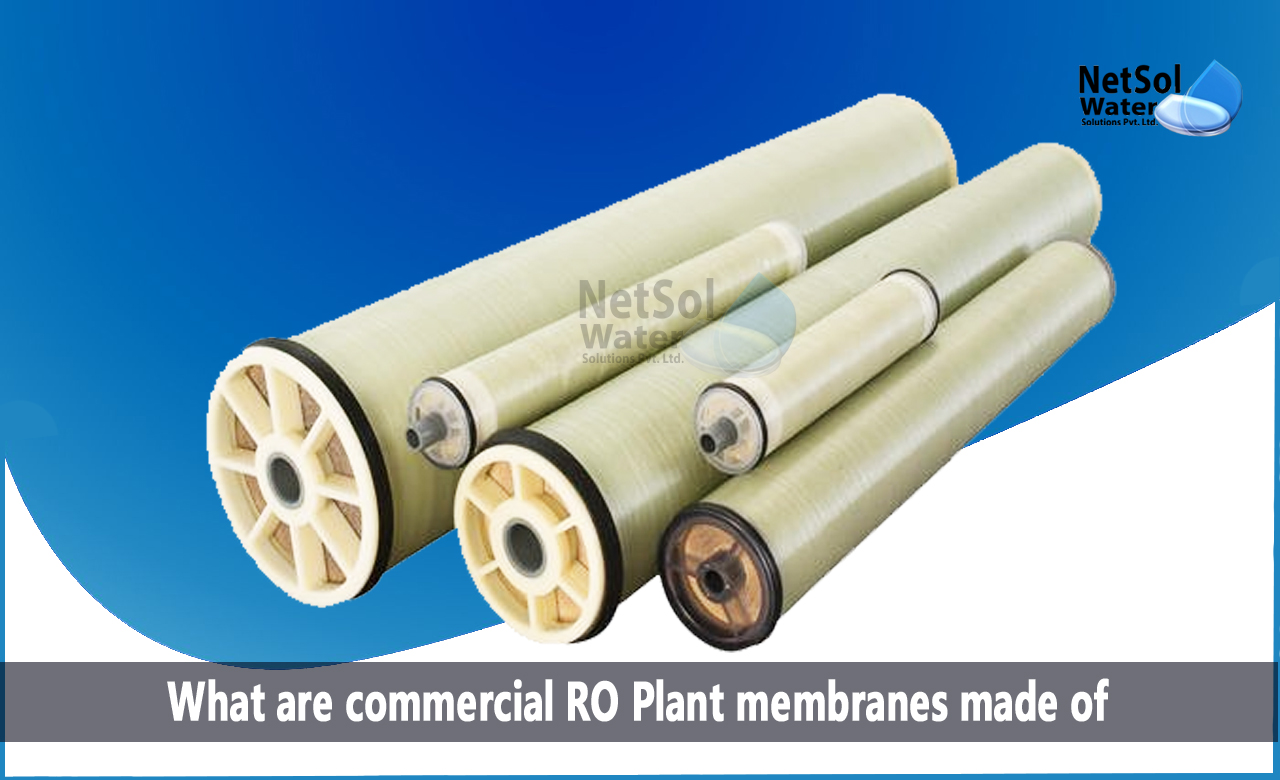Membranes are barriers used in water treatment that let water pass through, while keeping out undesirable contaminants. Similar to how cell walls in human bodies filter out salts, contaminants, viruses, and other particles from water, technical membranes do the same.
In the 1960s, membranes were used for the first time in water treatment processes. According to the size of the membrane's pores, membranes used in water filters are categorized as microfiltration membranes (MF), ultrafiltration membranes (UF), nanofiltration membranes (NF), and reverse osmosis membranes (RO).
Which membrane types are employed in commercial RO plants?
A membrane process is any technique that filters or removes particles, from water using a membrane barrier. Fluid travels through the membrane as a result of the pressure difference between its two sides. Only one side of a surface is contaminated.
Although, a wide variety of filtering media, including clay, silt, and sand, are used to clean water, one feature that sets membranes apart is their ability to remove minute components from a liquid, such as salts and ions.
What are commercial RO Plant membranes made of?
Different membranes are required for different operations; in general, they act as a sieve or molecularly separate water from contaminants.
1: Membranes made of cellulose acetate
These CAs have asymmetric membranes. Membranes for CAs are produced using acetylated cellulose. Compared to other RO membranes now on the market, these membranes provide a number of benefits.
They are quite well mechanically and easily constructed. They are also not severely damaged by chlorine. More than other membranes, like those made of aromatic polyamides, CA membranes can withstand up to 5 ppm of free chlorine.
2: Membranes made of thin film composite
Cellulose acetate membranes were the most often used option for RO membranes, up to the development of thin film composite (TFC) RO membranes in 1972. Based on aromatic polyamides, TFC membrane fluxes and rejections fared better than CA.
Besides having a high rejection and flux rate, these membranes provide a number of advantages over CA membranes. For instance, some organics with low molecular weight may be rejected. They are also more stable than CA over a wider pH range and at greater temperatures.
Are you currently looking for India's top Commercial RO Plant Manufacturers?
By strategically fusing cutting-edge water treatment technology with workable solutions, Netsol Water Solutions’ engages with a wide range of worldwide organizations to address challenging Reverse Osmosis issues.
Thanks to our state-of-the-art technology, we are the market leaders in Commercial RO Plants, Industrial RO Plants, Sewage Treatment Plants, and Effluent Treatment Plants. We customise water treatment systems to meet the specific needs of customers at a fair price. We provide both completely automated and semi-automated solutions.
Applications of our Commercial RO Plants
The chrome steel or stainless steel RO Plants that we offer ensure that the water system will endure longer. Almost any institution, including schools, universities, malls, offices, hospitals, dental clinics, housing societies, apartment complexes, hostels, restaurants, hotels, caravan parks, camping grounds, and more, can use one of our commercial RO plants.
Netsol Water is Greater Noida-based leading water & wastewater treatment plant manufacturer. We are industry's most demanding company based on client review and work quality. We are known as best commercial RO plant manufacturers, industrial RO plant manufacturer, sewage treatment plant manufacturer, Water Softener Plant Manufacturers and effluent treatment plant manufacturers. Apart from this 24x7 customer support is our USP. Call on +91-9650608473, or write us at enquiry@netsolwater.com for any support, inquiry or product-purchase related query.



